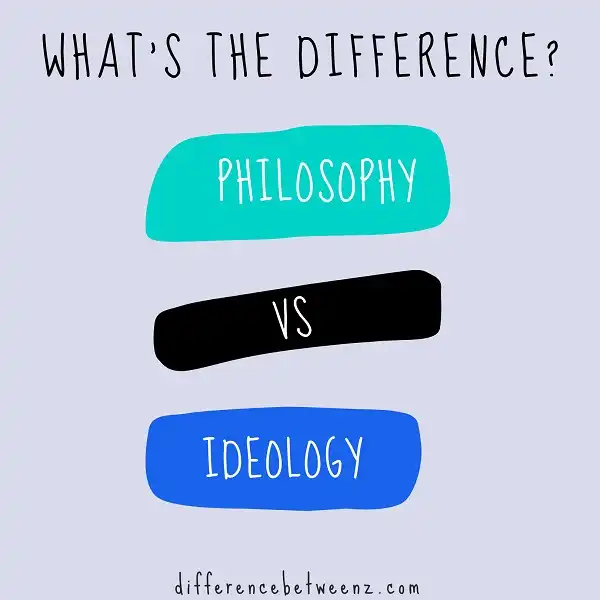Philosophy and ideology are two important terms that are often confused with each other. However, there is a big difference between the two. In this blog post, we will explore the definition of philosophy and ideology, and discuss the key differences between the two. We will also look at some examples to help illustrate the points made. So, what is the difference between philosophy and ideology? Let’s find out!
What is Philosophy?
Philosophy is the study of the fundamental nature of reality, knowledge, and values. It is divided into four main branches: metaphysics, epistemology, axiology, and logic. Philosophy is a critical and analytical discipline that challenges assumptions and examines concepts and beliefs. It can be applied to any field or discipline, including art, science, politics, history, and religion. The ultimate goal of philosophy is to gain a better understanding of the world around us and to find truth and meaning in life. Philosophy has been practiced since ancient times, and its impact can be seen in all aspects of human culture.
What is Ideology?
Ideology is a complex concept that has been defined in a number of different ways. Some people view ideology as a specific set of beliefs or principles that govern the way we think and act, while others see it as a broader vision or philosophy that informs our understanding of the world. At its core, ideology is concerned with ideas about how society should function – it can encompass values like equality, freedom, justice, and progress, and it can shed light on important issues like social inequality, economic policies, and political systems. Whether we are aware of it or not, ideology affects every aspect of our lives – from the food we eat to the clothes we wear to the political decisions we make. As such, understanding ideology is an important key to understanding how society works.
Difference between Philosophy and Ideology
There is a significant difference between philosophy and ideology, though the two are often confused. Philosophy is a system of thought or belief based on general principles, while ideology is more focused on specific theories and beliefs. Philosophy tends to be more abstract and theoretical in nature, addressing fundamental questions about concepts such as truth, beauty, and justice. By contrast, ideology often deals with more practical matters of politics and social organization, reflecting underlying values that shape people’s perceptions and behaviors. Thus, while both philosophy and ideology address important ideas about how individuals and societies should live their lives, they differ in terms of scope and approach. At the same time, however, there may be some overlaps between the two concepts; for example, some ideologies may reflect philosophical notions like humanism or utopia. Ultimately, then, it is up to each individual to explore the relationship between philosophy and ideology in order to understand how they influence his or her worldview.
Conclusion
Philosophy and ideology are related but distinct concepts. Ideology is a system of ideas that guides the actions of a group or nation, while philosophy is the study of general and fundamental problems concerning matters such as existence, knowledge, values, reason, mind, and language. It’s important to understand these differences when discussing political or social issues because using the wrong term can lead to confusion and misunderstanding.


